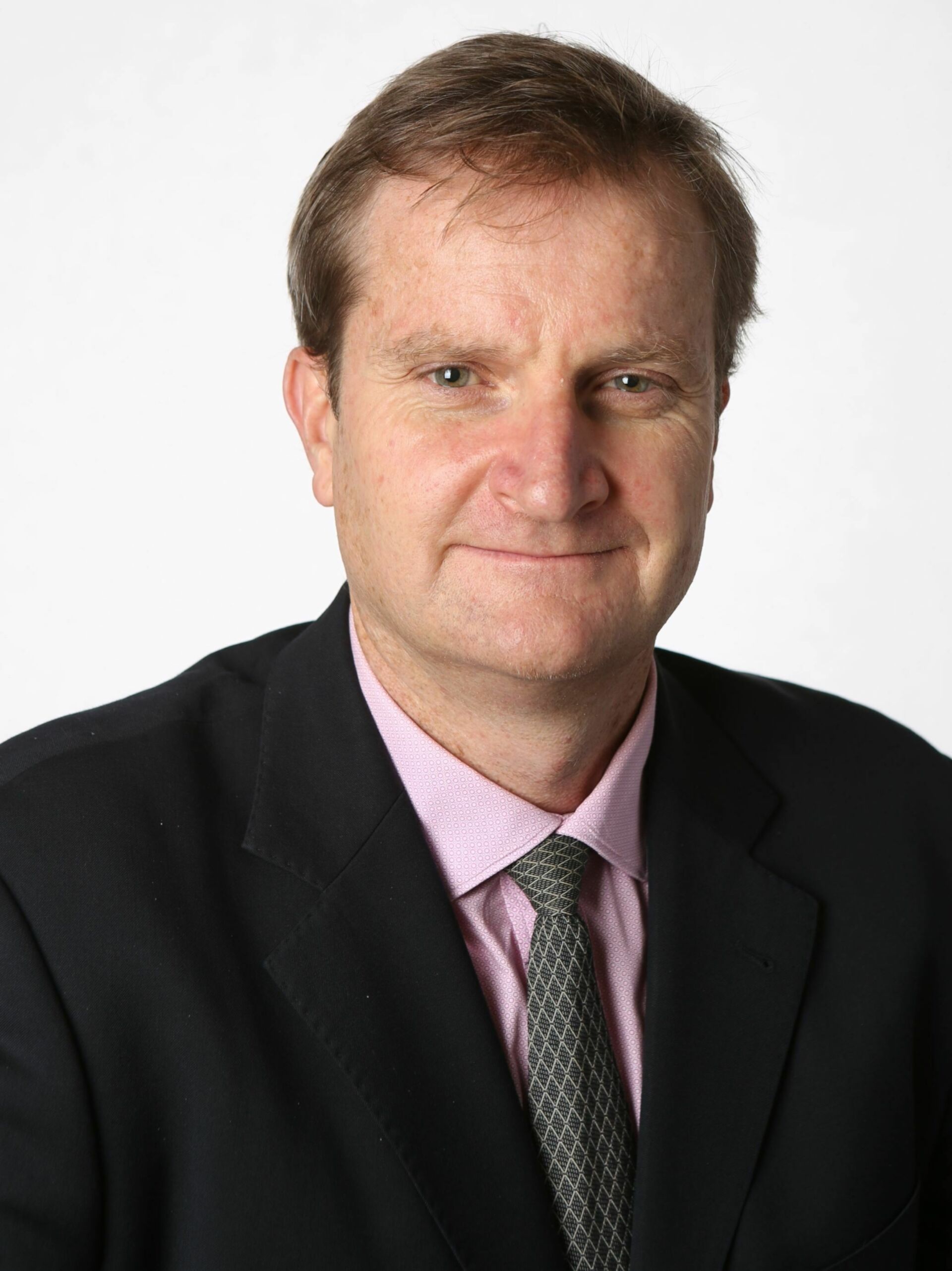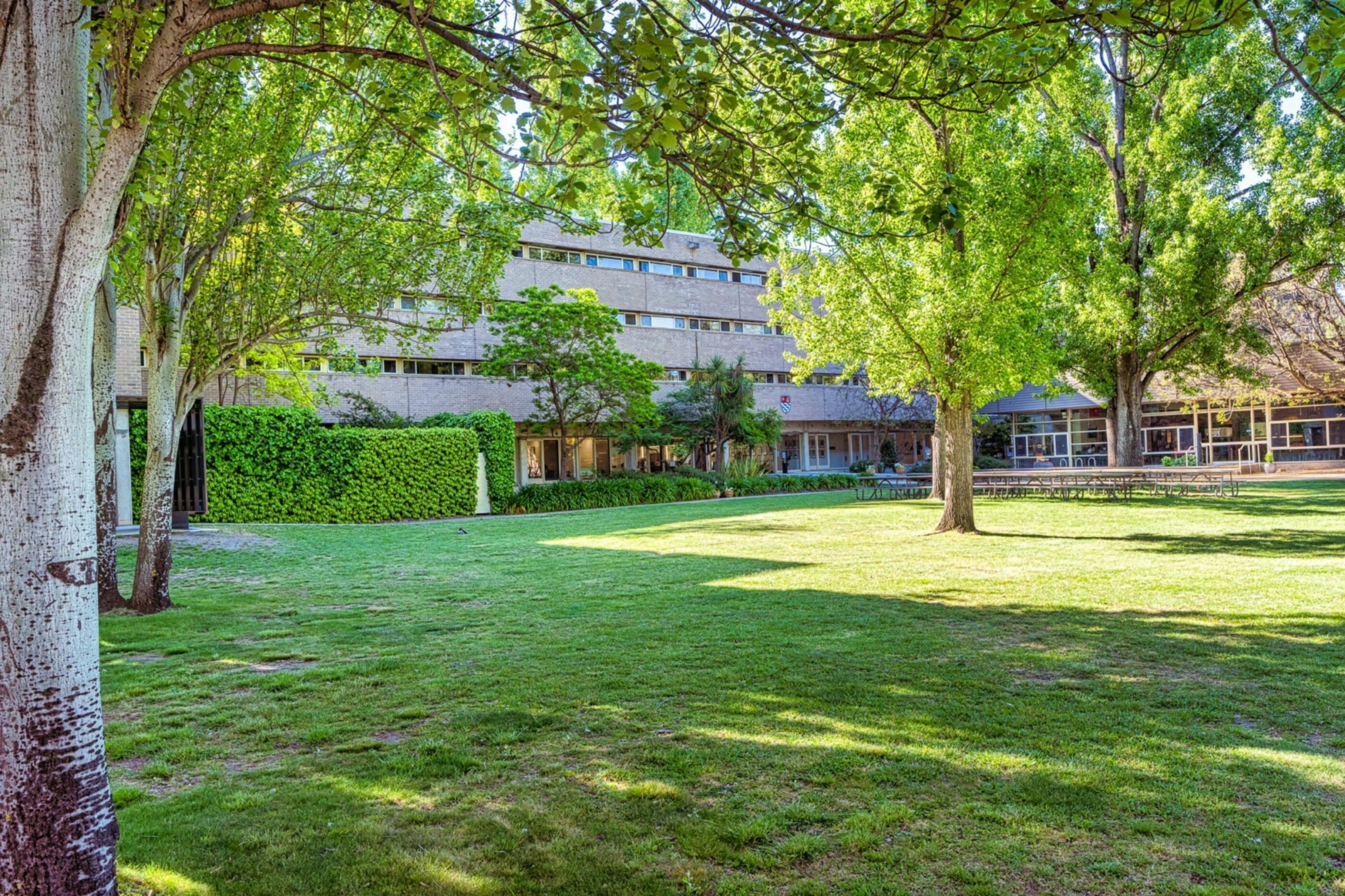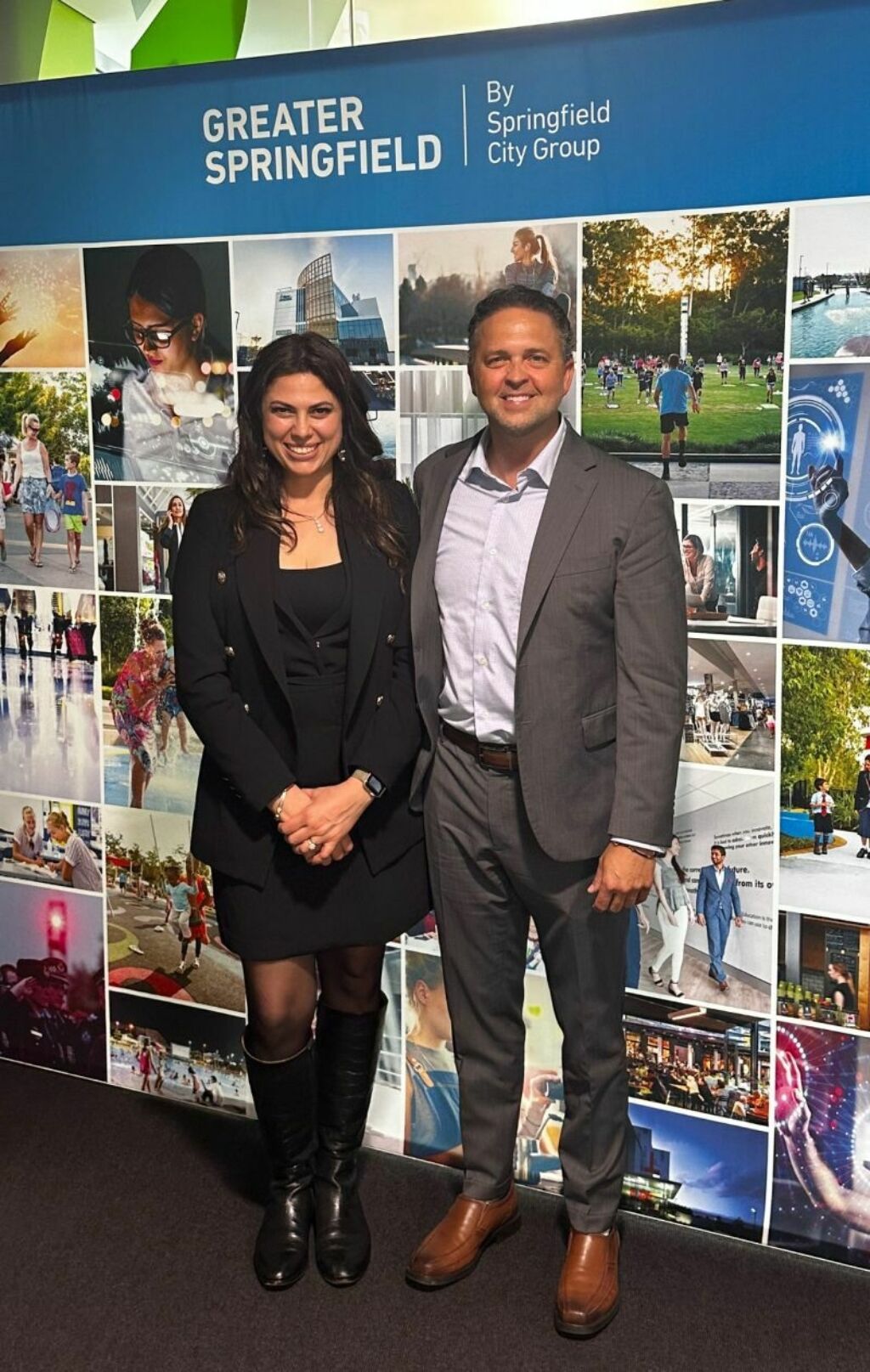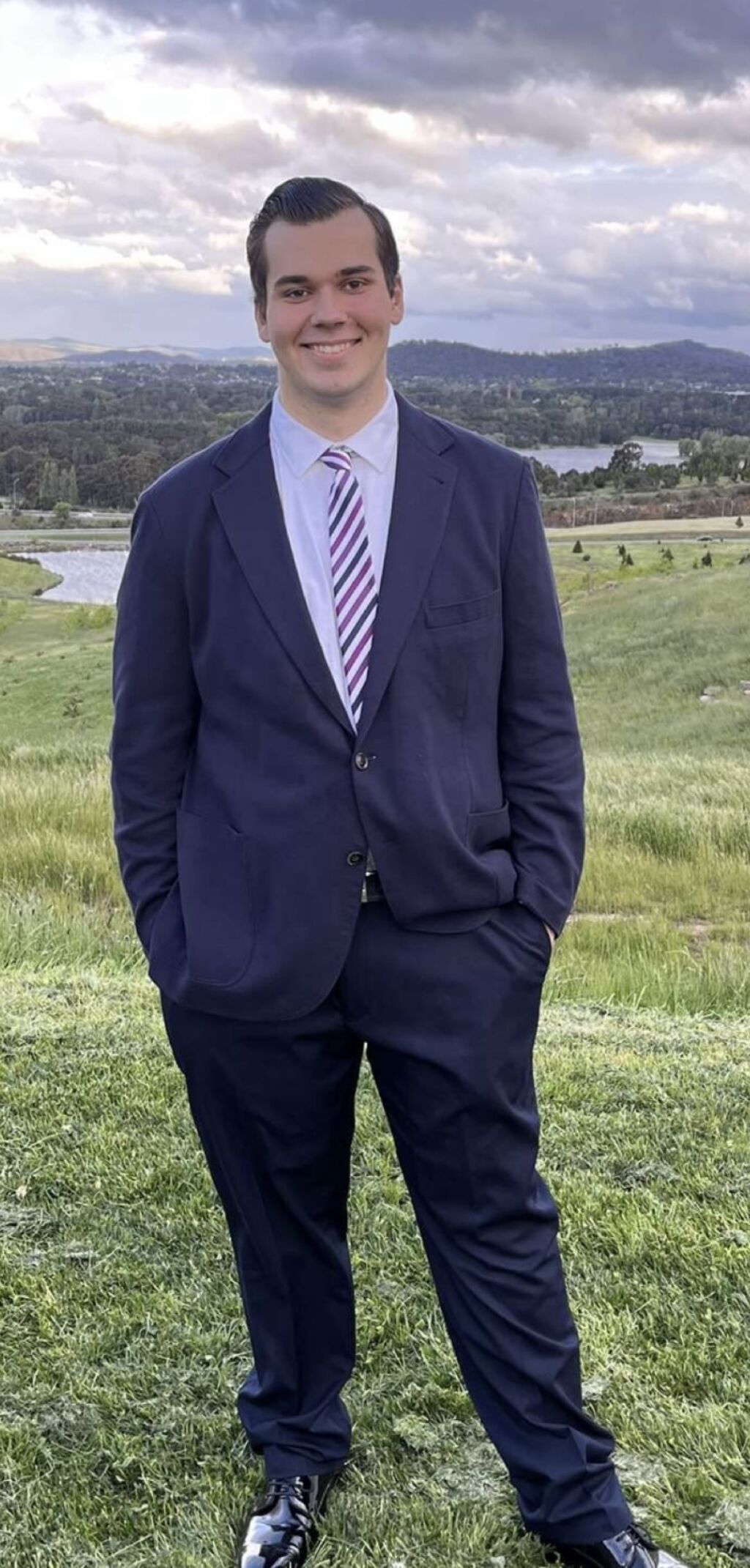Alumni Tim Payne (1991–1993) and Joe Negrine (2020–2022) met through our BAM mentoring program and wrote this insightful and thought-provoking article in 2022 about the nature of education in Australia, the value of living on campus, as well as the impact of the pandemic on the education experience.
Introductions
Tim
Joe and I were matched by the Burgmann mentoring program in August 2021, in the middle of the COVID-19 pandemic. Joe’s studying a combined Arts/Law degree at ANU majoring in economics. I completed the same courses in 1996 with a history major. My career has been as a policy analyst working first in politics and then within the higher education sector. We have connected regularly online but are yet to meet in person. I have found the experience hugely enjoyable.
Joe wrote to me after we first met on Zoom, ‘I can’t believe how quickly the time went by’. It’s been the same for me. Joe’s an incredibly engaging and interesting person, and I’ve often left our sessions wondering who’s been mentoring who! We are separated in age by almost 30 years and come from very different backgrounds, but we have discovered we have very similar interests, aspirations and concerns about the directions in which Australia and the world are heading. I have no doubt that the shared experience of living at Burgmann and its mentoring program have brought our two lives together, which would never have intersected otherwise. I am grateful for this and suggested to Joe that there could be value in us sharing something of our experience and reflections with the wider Burgmann community.
Joe
The college mentoring program has been rewarding on so many levels. On an interpersonal level, I’ve really enjoyed connecting with Tim and sharing stories about life at university. On an educational level, it’s been a privilege to have a mentor who is so generous with his time and knowledge—our Zoom catchups always leave me with numerous new ideas swimming round my head. Last, on a personal level, I’m extremely grateful to have Tim as a sounding board when musing upon the formative experience that is university.
One of the topics Tim and I have discussed at length during our sessions is the question of what the purpose of a university education is today. It’s perhaps unsurprising that we have reflected on this subject. My whole university (and college) experience has been profoundly impacted by the pandemic, while Tim works in a university that is grappling with this question as it looks to emerge from the crisis. As you will read, our discussions about the purpose of a university education today have caused us to also consider the nature of school education in Australia across our generations, as well as the value that living on campus in a college like Burgmann adds to the overall experience of university.


School education
Joe
My experience of secondary education in Australia was like a big Rubik’s cube. At first, it appeared chaotic and insurmountable: a collection of seemingly related subjects (colours) built on each other (layers). While I knew that the puzzle could be completed—as I had seen others come before me and do so—I could not help but feel completely puzzled. My teachers and alumni seemed to dwarf me physically and intellectually. My classes pushed my feeble mind to its limits. My efforts to order smaller sections of the puzzle seemed to make the bigger picture only more unruly.
As the years went by, however, and I acclimatised to the endless stream of NAPLAN tests, maths problems and geography topics that exited my brain just as hazily as they entered, a certain truth dawned on me: secondary education, like a big Rubik’s cube, is but a game. It is a game conquerable through vast amounts of rote learning. A game that lauds convergent thinking to the point that we readily abandon all lines of abstract thought. This was my sad, but true, experience of secondary education in Australia today. For better or worse, one can accomplish a respectable score if you are willing to find a new way to express what’s already been said. For better, because the system rewards obedience and diligence. For worse, far worse, because that very same system teaches students that they can go through life without holding any independent opinions about anything. Never mind that, in the real world, there are no prizes for doing what’s already been done: secondary education conditions us to think squarely inside the box.
It is for this reason, among others, that I looked forward to university with such high hopes. University was, in my mind, a place for free thinkers. A place where one learnt for the sake of learning and challenged everything that they held to be true and thought creatively and discovered new perspectives to observe and analyse and critique the world around them.
Tim
I was saddened but not surprised by Joe’s observations about his secondary school experience at an elite city private boys’ school, where he completed the NSW Higher School Certificate. My daughter, who is completing Year 12 at a public high school in Sydney, has conveyed similar stories about NAPLAN, the preparatory curriculum, and the HSC rewarding rote learning and groupthink. I recall there was some of this back in the 1980s when I was at high school, but it was not as entrenched as it seems to be today. I certainly recall memorising quotes from Shakespeare, Jane Austen, history texts for the HSC, but back then our teachers stressed that students who showed flair, who conveyed their arguments clearly and rebutted the counter-perspectives well with supporting evidence, would be rewarded with the highest marks.
It’s a great shame for individuals and Australia if our school education system has developed the way Joe and my daughter’s experiences suggest it may have. In the age of globalisation and AI, where machines and cheaper labour available in other countries will consume most jobs involving routine and repetitive tasks, we know that the people who possess critical thinking, creativity, problem-solving, communication and team-work skills will be the ones who are rewarded in work and life. We need our school system to focus more on developing these types of skills in all students. Universities then have a role to play in strengthening and deepening them, for those school leavers who choose a university pathway.
University education
Joe
In many ways, university has lived up to my expectations. I can learn at my own pace. I am (largely) freed from timetables regulating when I must study, when I must eat and when I must busy myself with other trivialities. This newfound freedom at university means that lectures and tutorials don’t get in the way of my education. Should I wish to read under a tree, eat a peach, or visit a museum, there is no disciplinarian waiting to punish me. I am the master of my grades. I am the captain of my soul. In our tutorials – whether in person or online – it is the arguments that are unconventional and laterally-conceived that are the most celebrated. We are encouraged to connect our experiences and the world around us to what we have learnt. Our education, suddenly, becomes something more than a collection of facts, judgements and diagrams that exists between two slabs of cardboard. Our education becomes something that can, and should, be nurtured, enriched and enjoyed through discovery, discourse and debate. In certain courses, my peers and I have been motivated to un-limit theoretical boundaries, boundaries that were once sacrosanct. Critiquing the implied ‘rules’ within a discipline allows us to engage in more realistic, more fruitful, debates. In rejecting the view, for example, that law is a neat hierarchy, we can ask more probing questions, like ‘how has this previous view of law discounted and alienated participants of equally valid, yet sidelined, legal systems?’ These exercises, admittedly, often prompt more questions than answers. Difficult questions. Imperfect answers. They remind us, however, that many issues we face in the real world, unlike a Rubik’s cube, are not easily solvable. We inhabit complex systems, and this reality must be affirmed and embraced, particularly when preparing students to affect change in their communities.
While tertiary education has lived up to my expectations in many ways, teaching and assessment in certain disciplines at university still leaves much to be desired. First, we remain brutalised by the timed, written exam. In many courses these assessments test memory rather than knowledge and the ability to apply it in different contexts. Beyond improving our pace of handwriting, typing or copying and pasting, I struggle to see the benefits of this examination format. Second, not all academic fields inspire students to think critically about their course material from the get-go. Here, I turn to economics, a discipline that conveniently assumes away the imperfections that can, and do, exist in the real world. The discipline assumes that we all have perfect information; are always profit maximising; and that we have identical preferences which can be represented by a single consumer. While introductory models can train our intuitions, they are useful servants and dangerous masters. Lecturers ought to underscore the dangers of every assumption, lest we mistakenly believe that these models mirror reality. A university education is not meant to be qualitatively like secondary education. If tertiary education fails to inspire creative and critical thinking, we will continue to resemble our secondary-school selves: the products of institutional sausage factories that churn out inert, obedient, unconcerned products.
Tim
Early in our Zooming I relayed to Joe an experience I had at ANU early in my first year of study, which had a profound impact on me and my understanding about how a proper university education (at least in the arts, social science and humanities) differs from school. In 1991 I was studying Political Science 101, and for this course ANU then had a policy that every student had to have a face-to-face meeting with the Professor (not a junior academic) who had personally marked their first essay. I can’t remember the Professor’s name, but after a few civilities, she started to outline the many things she disagreed with in my essay and list its weaknesses in considerable detail. Then, towards the end of the meeting she said something like ‘…however, your paper was well written, well-argued and referenced, and while I disagree with just about everything you’ve written, I’ve still given you a HD because you did all those things very well.’ I remember being in shock, but also emboldened to take that individual and opinionated approach in future essays across my fields of study, while applying each discipline’s academic and referencing requirements. The approach didn’t always pay off. I encountered some lecturers who I thought graded my papers poorly – at least in part, I convinced myself – because they didn’t agree with or approve of the position I had taken.
My experience of Law School was that in most of the core Priestly 11 units, except perhaps Ethics and Constitutional Law, there was a heavy emphasis on being thoroughly across the mountains of detail of legislation and precedent, though the mostly open-book nature of the exams meant that you didn’t need to rote learn much of this stuff. For these subjects, like school, previous top students’ exam ‘briefs’ were passed down and there were often stories of exam questions not changing much between years. Important to remember too that the internet was in its embryonic phase in the early 1990s – few students had their own computers and I remember being blown away by my first experience of Netscape Navigator in the Burgmann computer lab.
It was in the elective law units like Legal Theory, Native Title Law, International Law, Human Rights Law, along with history subjects, public policy units and research projects, where there seemed to be much more room and acceptance for students to develop their own theories and positions, and be well-rewarded grade-wise for doing so. Unsurprisingly, these were the subjects that I found more interesting, engaged with more deeply, and ended up learning more from as a result. So, I’m pleased to hear from Joe that the ANU law program now enables and encourages students early in their legal studies to critique, unpack and debate existing theories of law, and to push previously sacrosanct boundaries to develop and prosecute their own theories of law and justice.
Looking back on my now 25-year career, while I have not practised law, I am doubtful that I would have secured some of the roles that I have held without formal qualifications in law. Throughout my career I have worked at the interface of policy, the development of legislation and its practical implementation. Barely a day has passed in any of my jobs where I have not drawn on an aspect of the knowledge or skills I developed through my legal studies. That said, I believe it is the combination of my legal studies, along with the analysis, research and communication skills also developed through my broad university studies, that have helped me throughout my career. If there is one overarching skill that I believe my multi-disciplinary university studies and related experiences have given me, it is the ability to see the wood from the trees. By this I mean the ability to identify key issues, work well with people with different perspectives and skills to my own, and in doing so to help complex organisations and sectors achieve consensus about how best to approach difficult policy-related problems and issues.
The value of living in a residential college while studying
Joe
A university education ought to be broad and challenging, humbling and empowering, and eye-opening and horizon-widening. I am privileged to say that, where I have not found this to be the case in the classroom, I have found it at college. The college dining hall, tutorial rooms and common spaces reflect what a university education is meant to be. Buzzing. Interpersonal. Interdisciplinary. Over a meal, you can taste the kaleidoscope of interests, passions and plans of fellow residents. You can engage in discussions with students from completely different fields of study. You can pick the brains of older residents. Every day, you have the chance to completely renew your perspectives. In the complex environment that is a residential hall, you are constantly faced with difficult questions. Difficult questions with imperfect answers. There are no formulae, no regurgitated essays and no ‘cube algorithms’ that exist to solve these questions. There are only skills that help. Skills like observation or analysis or inference or collaboration or resilience, to name a few. Indeed, these are the skills that universities are meant to cultivate. These are the skills that stand one in good stead long after graduation. These are the skills that are meant to be cherished.
Tim
I was at a party recently where I chatted with a couple whose daughter had just finished first year at an Australian university, after a year studying online due to the COVID-19 campus lockdowns. Their daughter was living at home with them, studying full-time, while holding down a part-time job. She had not made one new friend at university after more than a year of study. Her social life consisted of friends from school and new friends made through work. There had been no chance for on-campus contact. The few efforts she had made to connect with other students through social clubs had been stressful and had not produced any long-term results. Her parents expressed concern about the quality of the education their daughter was receiving online. They had experienced some of the lectures and tutorials first-hand, while working from home due to the pandemic. Both parents and their daughter were seriously questioning the value of the qualification she was working towards. Many of their daughter’s friends had decided to change universities for 2022, had deferred to take a gap year, or had dropped out completely to enter the workforce.
There is a profound difference between the university experience these students have had, compared to Joe’s and mine as members of the Burgmann community, albeit 30 years apart, and Joe’s experience also being impacted by the pandemic. Besides basic questions about the quality and value of the learning experience some students have been receiving, I worry that so many are missing the opportunity to make new friends from different backgrounds while at university. This is so sad when I think of the joy and meaning my life has had largely because of the friends and countless contacts I made while at university largely because I was fortunate to live at Burgmann. Some of my best friends remain people I met at O’Week in 1991, and this year many of us are celebrating our 50th birthdays together!
I feel deeply for the COVID-19 generation of students around the world who have missed out the opportunity of meeting each other on campus, in clubs and societies, through sport and uni-holiday adventures, in student colleges and other on-campus residences. I’m no doubt biased and appreciate that mine is a privileged view. However, reflecting on my own experience, and listening to Joe about how much living at Burgmann means to him in terms of the impact on his overall learning and personal growth, I feel we need to give as many students as possible the opportunity and financial capacity to live in a residential college, at least for the first year at university.
I therefore strongly support and commend ANU for setting this as strategic target for its students, whether drawn from Australia or overseas. However, with the cost of board at fully catered colleges like Burgmann and similar colleges affiliated with our top universities now approaching or already exceeding $500 p/w, living in them is out of reach for students from all but the most affluent families, unless access to fee-relief or other financial support is widely available so that no students need incur huge debts. Colleges like Burgmann need to redouble their efforts to ensure they draw talented students from the widest possible socio-economic, cultural and geographic backgrounds. If they fail to do so, the personal growth of future residents at Burgmann and other similar colleges affiliated with Australia’s best universities will be limited by the lack of diversity in the students who are able to afford to live in them.
Conclusion
Our discussion, enabled by the college’s mentoring program, about the nature and purpose of a university education is just one of the many thought-provoking conversations that have taken place between Burgmann residents over the years. Looking to the future, we hope that Burgmann – and universities and residential colleges around Australia and the world – will continue to attract and capture the imaginations of students. This, as we have noted, can only be achieved fully in environments that include a diverse range of perspectives, and which encourage students to develop independent minds through civil discourse and the exposure to different perspectives. We are looking forward to our future discussions, and hope that by sharing some of the thoughts that have emerged from our conversations, we might help stimulate more conversations within and between generations of Burgmann residents about this topic and others of significance. We look forward to hearing other current and past residents’ thoughts on the issues we have discussed, and would love to hear from other participants in the mentoring program, along with members of the wider college community, about the interesting conversations they have been having.


